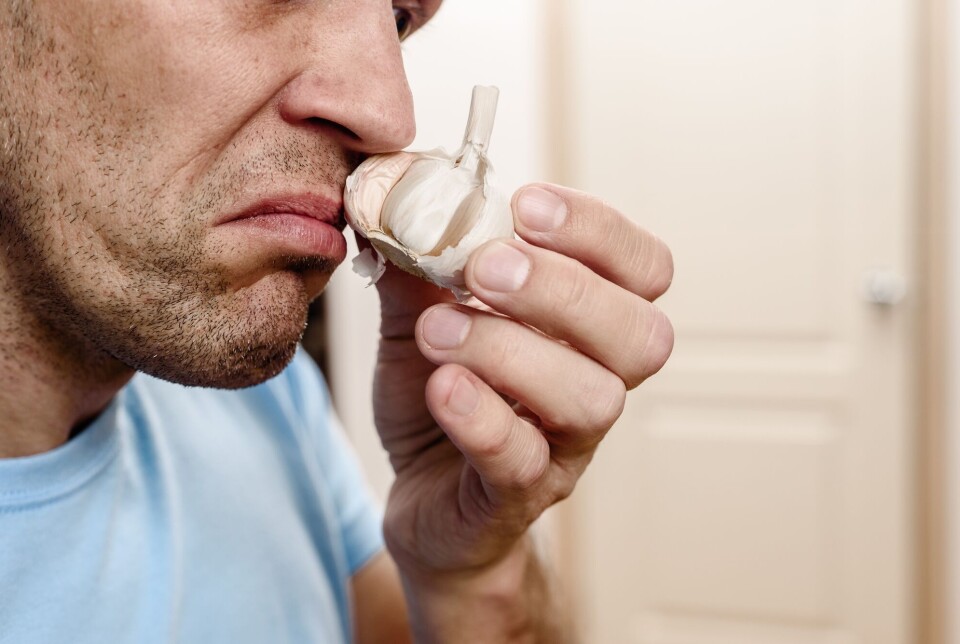
Long Covid: Here's what we know so far
The most common symptoms are changes in taste and smell. More women than men are affected, and symptoms appear to diminish over time. These are some of the findings from a recent review of studies on long Covid.
Just before Christmas, the Norwegian Institute of Public Health (NIPH) released a new summary of research on the long-term effects following a Covid-19 infection.
The NIPH reviewed 14 international studies on long Covid. All the studies were published in peer-reviewed academic journals. Each study included more than 500 participants who were all tested for Covid-19 and who were followed for at least half a year.
The most common symptoms were changes in taste and smell.
Forgetful and can’t smell
People who have had mild or moderate Covid-19 most often report that their sense of taste and smell has changed.
Many say they are tired and have difficulty breathing. Problems with concentration and memory are more common among those who have had Covid than in the general population. People also report anxiety, depression and other mental disorders, according to the NIPH report.
Most of the lingering symptoms from a Covid-19 infection are the same as after other respiratory infections, according to Jan Himmels, a medical doctor and senior adviser at the NIPH.
People who became seriously ill from Covid-19, such as people who had to be hospitalized, had more after-effects than those who had a milder course of the disease. The results support the current medical practice of providing the same follow-up and rehabilitation to these patients as is given to patients with other respiratory infections.
More women than men experience long Covid, the NIPH report says.
The persistent symptoms seem to diminish over time. The researchers believe that the new virus variants, which cause a milder course of the disease, probably also have a lower risk of after-effects.
Norwegian results
Arne Søraas is head of large coronavirus study at Oslo University Hospital (OUS). The study started in March 2020 and has followed more than 190,000 people throughout the pandemic.
In 2021, the OUS researchers published a study on long Covid.
“We were early in investigating the after-effects of Covid, in autumn 2020, when long Covid was not so well known,” Søraas said to sciencenorway.no.
“The participants in our study had tested themselves, so we knew they had had Covid", he says.
Thirteen thousand people were asked up to eight months later if they still had problems.
“The results are very clear. Far more people who had tested positive for Covid reported problems with memory and concentration than among those who had tested negative,” Søraas said.

Increase in long Covid
Eleven per cent of those who had tested positive for Covid still experienced cognitive problems, compared to 4 per cent among those who tested negative for the virus.
Most people with a negative Covid-test had a different kind of respiratory infection.
When the OUS researchers examined the prevalence of after-effects as the pandemic progressed, they found an increasing proportion of individuals with long Covid.
“This may be because people became more aware of the after-effects from Covid over time. They may have become more aware as to whether their memory was worse or if they struggled more with concentration post-infection,” Søraas said.
The OUS study was not included in the new summary from the NIPH because it was published as a research letter, which is a type of opinion piece in an academic journal.
Late effects can come after many months
The OUS study reported that one in ten may experience cognitive problems long after they are initially infected by Covid.
Cognitive problems include troubles with memory, concentration and brain fog.
“Cognitive problems don’t appear in the first few days, but can develop several months after the infection,” says Søraas.
“Our research shows that physical ailments such as exhaustion and breathing problems disappear more quickly, while cognitive problems and loss of smell and taste linger,” he said.
Numbers differ substantially
The number of people who report symptoms of long Covid differs substantially in the wide range of studies published on this topic.
This may be because some researchers examine symptoms in patients who were admitted to hospital, while others look at the Covid population as a whole. In some studies, patients are followed up after a shorter time than in other studies.
Not surprisingly, this leads to different findings.
Up to 20 per cent of patients with Covid have long Covid, which is defined as still having symptoms 12 weeks post-infection, according to the Norwegian website nhi.no (link in Norwegian). This is a site which provides health information for both medical professionals and the public.
The OUS researchers calculated that 10 per cent may have cognitive problems for many months after the infection.
Some studies find even higher figures. A study from the University of Bergen and Haukeland University Hospital showed that 46 per cent of Covid patients reported long-term complaints. The study included 233 home-isolated people who had tested positive for Covid-19 on a PCR test at the city’s centralized testing facility.
Other studies are underway to examine how patients fare over the longer term.
A nationwide Norwegian study of the very sickest Covid patients showed that 23 per cent had declining concentration and memory after six months. But after a year, the proportion had dropped to 12 per cent, according to a study of patients admitted to intensive care units.
Long Covid sufferers who had not had Covid
There are no tests available that can establish whether or not somebody has long Covid. Studies on this are therefore mostly based on what people report.
In Denmark, researchers decided to check whether a group of people who believe they have long Covid had actually had Covid.
Out of 8,000 participants in a Facebook group for people with long Covid, 1000 responded to a survey about their symptoms. 314 of these respondents agreed to take a blood test to check for Covid antibodies. The test was able to separate antibodies from the vaccine and from an actual infection.
The researchers were surprised to find that 109 of the blood tests showed no signs of a Covid infection. That makes up 32 per cent of the test group.
“They are not well, they are ill. They have several different symptoms that they believe to be caused by Covid-19. But their problems are not related to a Covid-infection. Their symptoms are caused by something other than corona, researcher Kasper Iversen said to Danish newspaper Politiken (link in Danish).
Iversen is a clinical professor at the University of Copenhagen in Denmark.
Warns against generalising
As many as 90 per cent of the participants in the study were women. Most of them experienced the symptoms of long Covid in much the same way. The biggest difference was that those who had in fact not had Covid but believed they had long Covid on average had experienced symptoms for 100 days longer than others.
Iversen suggests that there may be other causes for these symptoms – other infections, diseases, or depression. The strict Covid infection measures and closing down of society may also have caused much distress.
The professor also warns against generalising based on this study. The members of the Facebook group may differ from the public at large, and people with health care problems may be especially motivated to participate in such a study.
The results nonetheless show the importance of early and precise diagnosis, both for patients and the health care system, Iversen says to Politiken.
“It doesn’t make sense to treat people for symptoms of long Covid, if their health problems and symptoms in fact have nothing to do with a Covid-infection,” he says.
Arne Søraas from Oslo University Hospital is sceptical to the study.
“They recruited participants from a Facebook group about long Covid symptoms. This is not common in studies of long Covid,” he said to sciencenorway.no. “I don’t know what this study contributes to the research on long Covid.”
Søraas believes that far too little is invested in research into long Covid.
NIPH underestimates long Covid
“The National Institutes of Health in the USA realized early on that long Covid is a problem. They invested in good research by putting more than $1 billion USD on the table,” he said.
Søraas also believes that the Norwegian Institute of Public Health underestimates how many people have long Covid.
The new report from the NIPH compares the after-effects from Covid with symptoms that persisted after other infectious diseases. The report states that ‘it is therefore not unexpected that some experience long-term symptoms even after Covid-19.’
This is very problematic, according to Søraas.
“This message says, in practice, that long Covid does not exist. Even though the rest of the report adds some nuance to the argument, people often only remember the introduction,” he said.
Jan Peter William Himmels from the NIPH said that despite budget cuts, the NIPH will prioritize the study of long Covid in 2023.
“It is sad to hear that some people think that the NIPH does not take the matter seriously. We are actively monitoring developments on the research landscape. Our recent report on this is an example,” Himmels said.
The NIPH is also considering the possibility of combining other data sources with systematic overviews so it can offer good data for Norway.
“Our aim is to offer good, reliable documentation that is reproducible. Looking at studies that compare Covid-19 with other respiratory infections is our approach to understanding what is special about Covid-19, and how we can identify people who need special help,” Himmels said.
Translated by Nancy Bazilchuk
References:
Jan P.W. Himmels et al.: Late sequelae after Covid-19 and new-onset disease after Covid-19: quick overview. Norwegian Institute of Public Health, 2022. (in Norwegian)
Arne Søraas et.al.: Self-reported Memory Problems 8 Months After COVID-19 Infection. Research Letter, Jama Network Open, 2021.
Kamille Fogh m.fl.: Self-Reported Long COVID and Its Association with the Presence of SARS-CoV-2 Antibodies in a Danish Cohort up to 12 Months after Infection, Microbiology Spectrum, november 2022.
———
Read the Norwegian version of this article on forskning.no



































